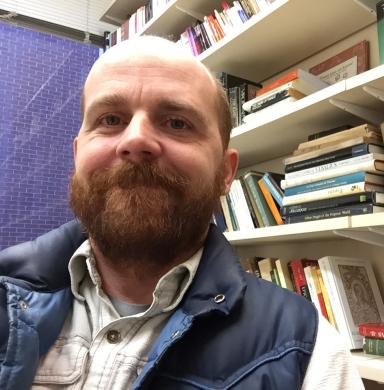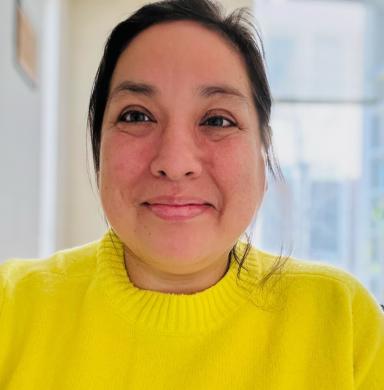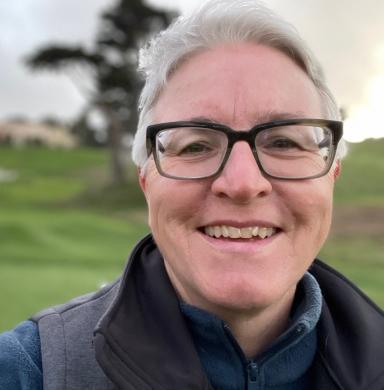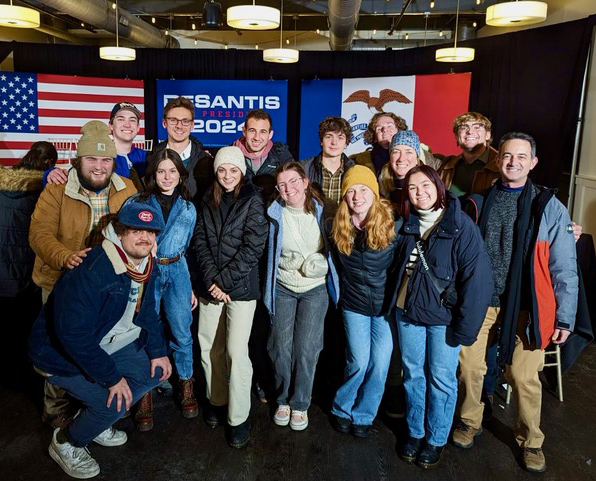Stories that Speak to Us: Celebrating the Strength, Courage and Creativity of Women Changing Our World

Stories told through literature, theatre, film, TV and podcasts can inspire and empower, connecting us deeply and reflectively with our personal and collective experience in ways that often reverberate throughout our lives. The College of Arts, Humanities & Social Sciences (CAHSS) newsroom periodically asks CAHSS leadership, faculty, students and staff to contribute their recommendations in specific categories toward specific themes for our “Stories that Speak to Us” series.
To honor Women’s History Month 2024, we asked a few CAHSS faculty members to share their picks for stories that celebrate the strength, courage and creativity of women who have changed our world and women’s lives for the better.
Elizabeth Escobedo, associate professor, Department of History
In preparation for my U.S. women’s history class in spring quarter, I’m reading historian Keisha Blain’s 2021 biography of civil rights activist Fannie Lou Hamer, “Until I Am Free: Fannie Lou Hamer’s Enduring Message to America.” Hamer was a Black woman sharecropper with little formal education but a whole lot of passion for social justice. Despite violence, intimidation and harassment, Hamer was formidable in registering Black residents to vote in Mississippi in the 1960s and publicly condemned voter suppression and state-sanctioned violence against Black people in a televised speech delivered at the 1964 Democratic National Convention in Atlantic City.
The book is particularly engaging and relevant given Blain’s unique approach: each chapter utilizes a present-day racial justice flash point to explore Hamer’s long-lasting legacies in movements for equality. Blain demonstrates, for instance, that the pressure exerted on social media to address Breonna Taylor’s 2020 death at the hands of police resonates with Hamer’s masterful use of television to document white supremacy. In so doing, Blain highlights the significance of Hamer to the larger civil rights movement, a history that too often privileges the ideas and activities of male leaders. Her work also makes Hamer’s legacy relevant to a new generation, even more important given recent efforts to shut down conversations about race in U.S. classrooms.
The book looks at the civil rights movement historically and today through an intersectional lens that addresses gender, race, class and disability — Hamer was permanently disabled after a brutal beating in Winona, Mississippi in 1963 — and makes for a moving, important read.
Chad Leahy, associate professor and chair, Department of Spanish Language, Literature & Cultural Studies
I have two feminist recommendations from the little world I work in, which is global early modern Spain. First is Sor Juana Inés de la Cruz, Selected Works. Sor Juana is a wildly fascinating, 17th-century Mexican nun who wrote ferociously in defense of her rights as a woman to be a writer and an intellectual. Her writing is also often read as a sort of lesbian foremother of things to come later (she probably had a relationship with the Viceroy's wife). Her rejection of the binary logics of gender is something else — she insists that souls don't have gender, for example.
My second recommendation is the story collection Exemplary Tales of Love and Disillusion by Spanish novelist, poet, and playwright María de Zayas y Sotomayor, whose work is jaw-droppingly incredible. The project critiques violence against women and the coercive patriarchal structures that women in her day were made to operate within. She wrote two collections of short stories that are no-joke, punch-you-in-the-gut intense.
Angela Parker (Mandan, Hidatsa, Cree), assistant professor, Department of History
I recommend “Beans,” the 2021 film by Mohawk-Canadian filmmaker Tracey Deer that dramatizes the 1990 Oka Crisis, an armed conflict between a Canadian border town and a Mohawk community, through the eyes of a 12-year-old Mohawk girl.
My book recommendations include “The Round House,” by Ojibwe Author Louise Erdrich, a National Book Award-winning novel told through the eyes of a 13-year-old Ojibwe boy as he and his parents navigate the pain and injustice of the brutal rape of his mother. The book explores a juridical context in which the ability to seek justice depends on the location of the attack — on- or off-reservation? — the race of the perpetrator, the race of the victim and the resources and willingness of various arms of the criminal justice system to investigate and prosecute the violent attack. Despite the violence of the central conflict, the language of the novel is filled with care and the deep love of Indigenous family ties — which makes the injustice even more gutting.
I would also recommend “The Beginning and End of Rape: Confronting Sexual Violence in Native America,” by Muscogee Creek Author Sarah Deer. Indigenous women have a two-and-a-half times higher chance of experiencing sexual violence than the broader population, and approximately 37% of Indigenous women experience sexual assault in their lifetimes. Deer argues that violence against Native American women is not an epidemic — which implies a biological and blameless root cause. Rather, Deer illustrates how violence against Native women is historical and political, bounded by oppression and colonial violence. Deer was a 2014 MacArthur Fellow and advocates for feminist, queer and trans politics in Indigenous communities.
Sheila Schroeder, professor, Department of Media, Film & Journalism Studies
I recommend Billie Jean King’s 2021 book “All In: An Autobiography.” King was a seminal figure in my own life as a leader in the women's sports movement starting with her organizing to create the first professional tennis tour for women. Her whole career, through to today, has been about creating equal opportunities and pay for women, in sports and throughout American society. It is because of her efforts that women and men make the same amount at venues like the U.S. Open Tennis Tournament. She sacrificed greatly as she came out as lesbian, losing most of her corporate sponsors, but in doing so, set an example for queer people everywhere.
King’s book chronicles a life in the spotlight where she dominated women's amateur and professional tennis, a journey that was not always easy because of the sexism and homophobia that permeated sports and culture. The 2017 film “Battle of the Sexes” takes us inside one of the most important battles for equal rights as King takes on Bobby Riggs during national primetime television in a tennis match. She eventually won but the experience took an enormous toll on this outspoken advocate for women's rights.









